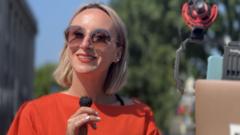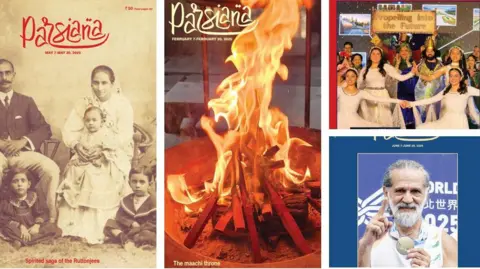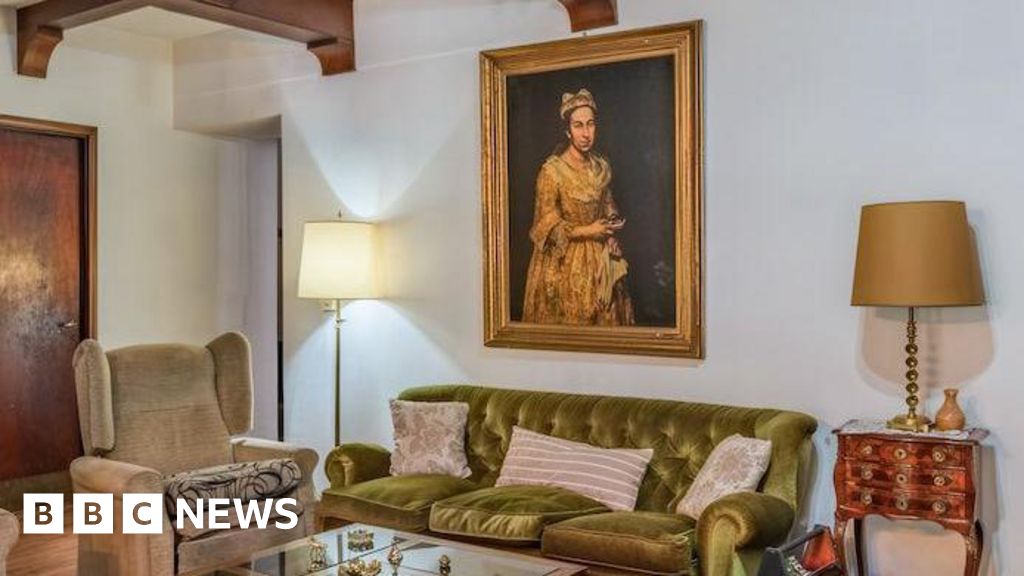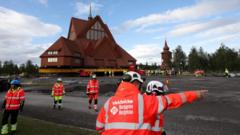I was having an ordinary day planned, ready for an adventure with bags in tow, when I was struck by an overwhelming sense of disbelief. The spot where my cargo bike should have been parked was empty, the double lock that tethered it to the wall of my Amsterdam apartment had been cut. My daughter, filled with optimism, surveyed the nearby bikes, certain that someone had merely relocated ours, but to our dismay, it was gone.
In the Netherlands, cycling is an intrinsic part of life, forming what some refer to as the "Dutch DNA." I, like many here, have no car and rely on my bike for various tasks ranging from school pick-ups to grocery runs. But this bike was unlike any ordinary bicycle. My colleague Kate Vandy and I had transformed it into a mobile broadcasting unit, dubbed the Bike Bureau. The concept for this venture originated during a mundane school run after my daughter questioned, "Why don't you just tell people the news now?"
With my bike, I could swiftly reach news scenes and broadcast live, all while sharing moments with my daughter, demonstrating a tangible vision of joyful and real working motherhood. This mobile studio, solar-powered and environmentally friendly, helped foster collaborations, recognized the innovative spirit of journalism, and cultivated a sense of community through shared storytelling.
Despite my imaginings of being reunited with my bike, I have little faith in its return. The investigation I initiated with local police was sidelined due to insufficient evidence. However, a wave of support emerged from neighborhood friends and social media followers, who expressed their wish to come together and assist in the search. As we navigated this loss, my daughter pondered why so many people felt invested in our story.
The bike served as more than just a means of transportation; it provided a creative outlet and a source of inspiration for work-life balance within motherhood, resonating with others who shared similar struggles. Many responded with messages of appreciation, with one famous BBC camerawoman suggesting my bike was a model for the future of journalism. Its approachable nature showcased how individuals are taking action against climate change, offering much-needed personal and empowering narratives.
While incidents of bike theft are sadly widespread in the Netherlands—with over 86,000 reported in the past year alone—there seems to be a misunderstanding about the prevalence of such crime in this nation known for its cycling culture. My e-cargo bike cost nearly €5,000 (around £4,200), a significant sum even overshadowing the price of an old car I used to own. Though the BBC does not suffer financial repercussions from the theft, my loss signifies far more—independence that has now been stripped away.
Through the joy and adventure that the bike symbolized, it contributed to a whimsical childhood for my daughter, filled with exploration and the simple delights of nature. This loss has incited discussions on urban safety, cycling policies, and the challenges faced by mothers today. Still, it speaks volumes about the heartfelt community we've forged and the undeniable impact of sharing genuine stories from the heart of our cycling escapades. Even if my bike remains lost, the experiences and emotional growth it afforded us will always remain intact.




















